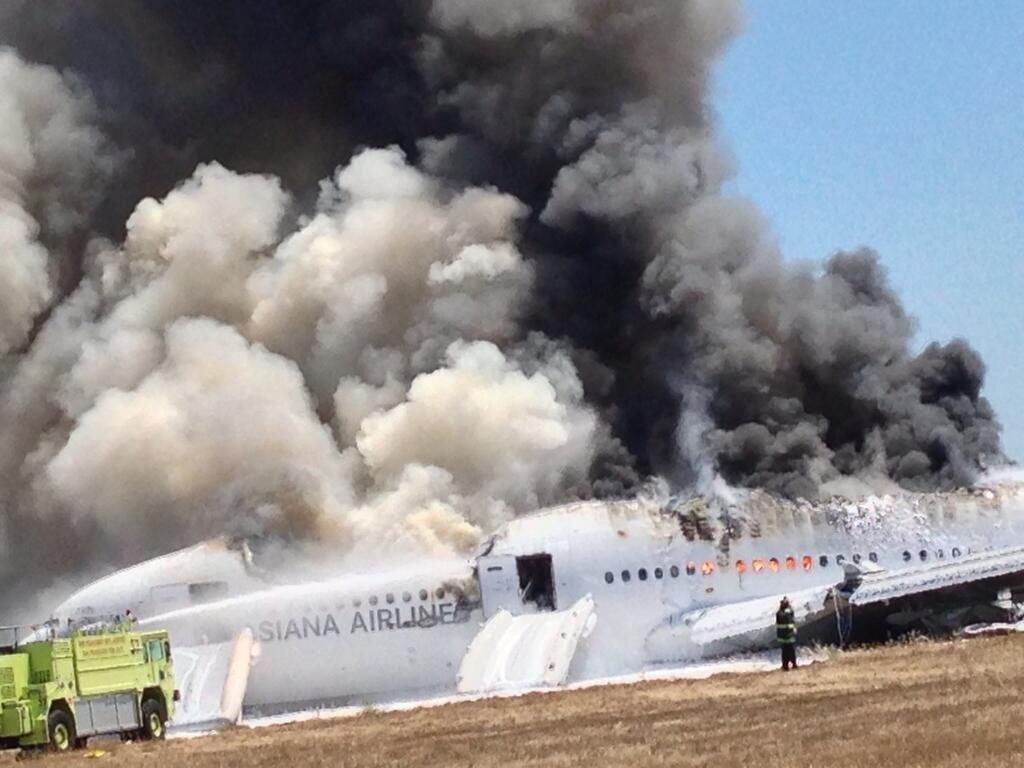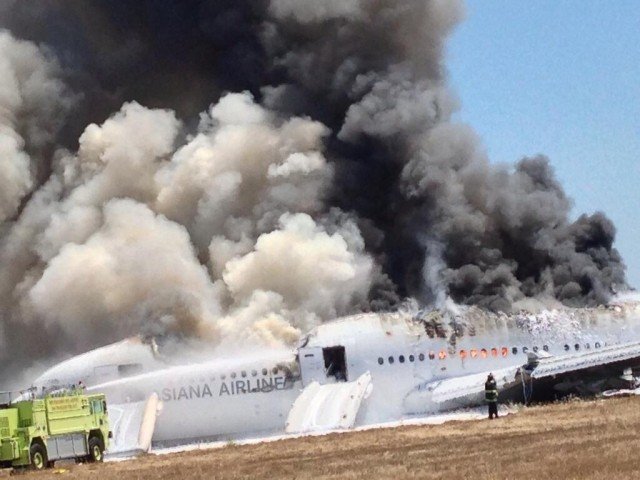
Asiana Airlines Boeing 777 that crash-landed at San Francisco airport was “significantly below” its target speed near the runway and the pilot tried to abort the landing, US investigators say.
The pilot was flying into San Francisco for the first time at the controls of a 777, Asiana Airlines says.
The flight from Seoul with 307 people fell short of the runway on Saturday, killing two and injuring dozens.
The aircraft apparently hit a sea wall, ripping off its tail.
Passengers and crew escaped down emergency slides as it burst into flames.
Asiana Airlines confirmed that two female Chinese teenagers died in the crash. They had been seated at the back of the aircraft.
They are believed to be the first-ever fatalities in a Boeing 777 crash.
San Francisco’s coroner is currently trying to establish whether one of the two fatalities occurred after a passenger was run over by an emergency vehicle rushing to the scene of the crash.
At a news conference on Sunday, National Transportation Safety Board (NTSB) chief Deborah Hersman said aircraft speed was below the planned 137 knots (158 mph; 254 km/h) as it approached the runway.
Citing information both from the cockpit voice recorder and flight data recorder, she said there was a call to increase the speed about two seconds before the impact.
The pilot then requested to abort the landing and “go around”, Deborah Hersman added.

“We have to take another look at the raw data and corroborate it with radar and air traffic information to make sure we have a very precise speed.
“But again, we are not talking about a few knots here or there. We’re talking about a significant amount of speed below 137,” she said.
Asked about possible reasons for this, Deborah Hersman stressed that “everything is on the table” and “it is too early to rule anything out”.
It has now emerged that although the pilot who was at the controls had nearly 10,000 flying hours – only 43 hours of those were on a Boeing 777.
Asiana Airlines said that Lee Kang-kook was assisted by another pilot who had more experience flying that type of aircraft.
Although he had flown into San Francisco 29 times at the controls of other types of aircraft, this was the first time he was doing so at the controls of a Boeing 777.
In a separate development, US officials confirmed that a navigation system helping pilots make safe descents was turned off for maintenance at San Francisco airport.
The Glide Path is used for landings in bad weather conditions; however, it was clear and sunny when the Asiana Airlines aircraft crashed on Saturday.
The twin-engine Boeing 777 has a good safety record for long-haul and is used by many major carriers.
The only previous notable crash occurred when a British Airways plane landed short of the runway at London’s Heathrow Airport in 2008.
Five people are in critical condition at San Francisco General Hospital, hospital spokesperson Rachael Kagan said. Three others are being treated at Stanford Hospital.
About another 15 have yet to regain consciousness, said Margaret Knudson, interim surgery chief at the hospital,
Altogether 181 people were taken to hospital, mostly with minor injuries.
There were 291 passengers and 16 crew on board, Asiana said.
Nationalities on board included 141 Chinese, 77 South Koreans and 61 US citizens, the airline said.
[youtube eotOVyXQYmc]
[youtube PeTpPyZm-1Q]